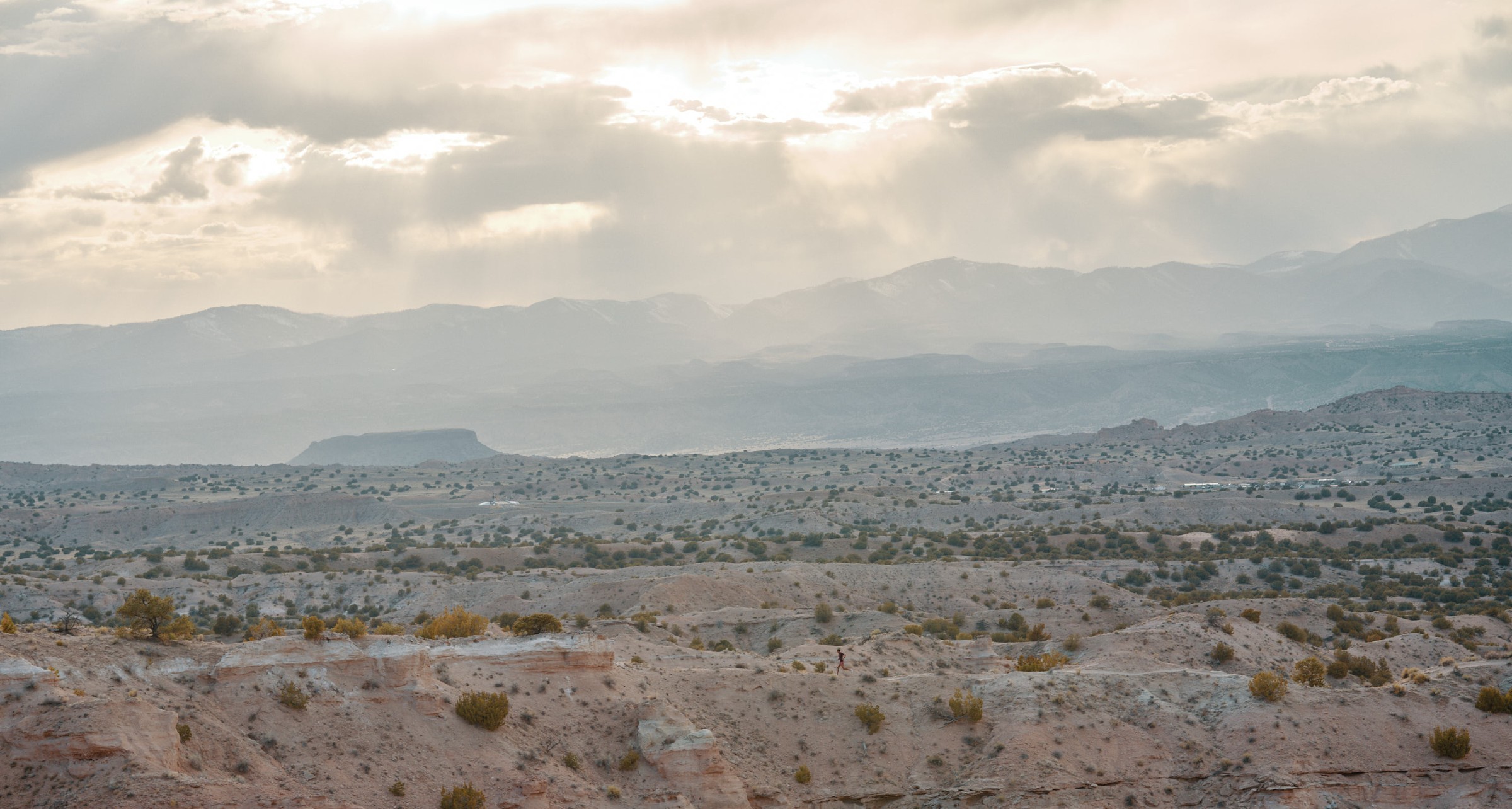
We don't
Live in the
Shadows

Interview as told to Anica Wong
Photography by Caleb Alvarado
Poetry and running both connect to a heartbeat – a cadence that drives the movement forward. Whether he’s running backroads on indigenous lands or speaking his truth on stage during a poetry performance, the rhythm of the land and of his experiences course through Alejandro Jimenez’s body. He sees both practices as tools he can use to break stereotypes.
Alejandro missed qualifying for the 2016 Mexican National Championships in the 10,000m by a few seconds. He considered going pro, but his college experience, a time rife with expectations to produce result after result, made him realize that there’s more to life than running. Now, he is a high school counselor, a poet and he is training to run his first marathon as a time trial. His heart pumps an elixir of anger, connection and hope. Step after step, word after word.
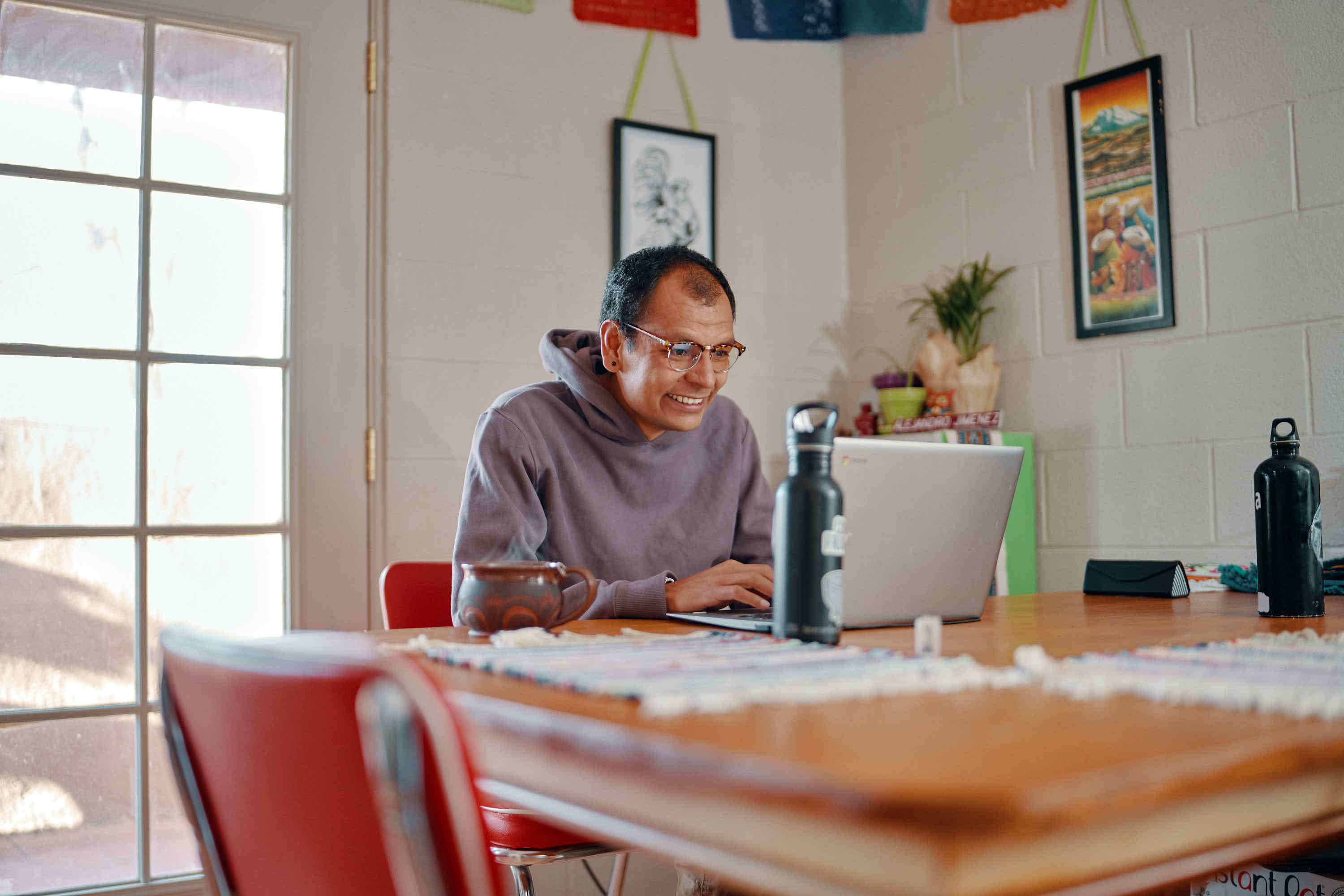
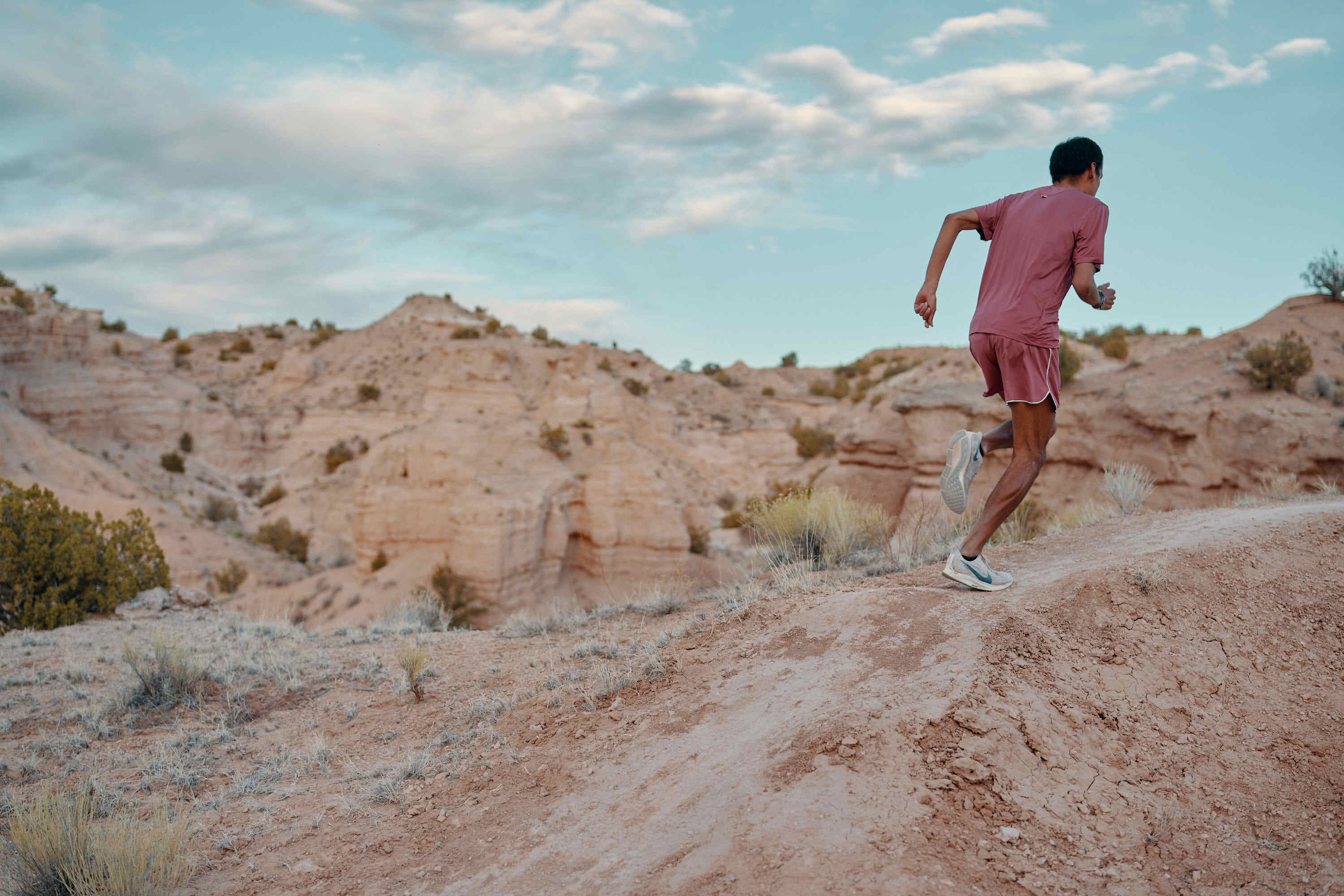
I'm a Mexican that happens to be living in the United States. I don't think of myself as American at all, even though I've been living here since I was eight years old. I'm 33 now. I'm not a U.S. citizen. I was denied citizenship because an Immigration Officer didn’t like the way I talked to him; he was trying to belittle me at my citizenship ceremony, the last step of the citizenship process. I stood up for myself, one thing led to another, and I was denied citizenship.
There's so much that people ask of me as an immigrant. They want us to conform to and give in to the ideal of this perfect image of what an immigrant in America should be. And that's not something I want to strive for, you know? In a lot of ways, running has been my way to break the mold of what an immigrant should be and what being an immigrant in American could be.
Our Mexican marathoners in the 80s and 90s were the shit. They were super fast and winning marathons – major marathons – left and right. We have that history of runners, so why aren't there more [Mexican] runners? There's a push and pull of like, well, you shouldn't be allowed, you shouldn't have so much freedom in the U.S. as an immigrant. And what’s the best way to say, “no, I am free” than by being a runner?
We were campesinos both in Colima, Mexico, where I was born, and Oregon. We grew up as farm workers. My first memories as a kid in Mexico were running: running with my friends, running to class, running to play or running to drop stuff off at my family's piece of land.
Running in college was never in my periphery. It wasn't until I met a coach in high school when I was able to really think of running as a means to get me somewhere other than a finish line. I had this connection with him that was super awesome. And he helped me see that running wasn't everything. Because of that, I could relax. I could be like, cool, I can train and try to be the best or go to state or whatever. Those results came. But it's not the end of the world [if they don’t].
In college, I went to a small DIII school. It was very, very competitive. Nick Symmonds was a senior when I was a freshman. The coaches were awesome but that relationship wasn't there. It was like, produce, produce, produce. It really took the fun out of it. Then there were frustrations where I was like, “man, I know I'm better and faster than this. Why aren’t the results coming?” I know I’ve shown glimpses of fast times and going to nationals consistently as both an individual and as a team.
By my senior year, I felt like I didn't accomplish anything. I didn't live up to the expectations of myself or the coaches. I felt like if I wasn't doing good, if I wasn't getting attention from coaches, if I wasn't running fast, I felt down. There weren’t injuries or nothing. It was all mental. I realized that I needed that relationship aspect, whether it was to coaches or my teammates. I needed that to look at running in a more healthy way. I didn't have the guidance that told me, “look, this is where you’re at and this is how you get here, as far as running.” I thought it was like, “do the work and the results will come.” Yes, there’s some aspect to that, but a lot of it is psychological.
I'm used to physical work as a farm worker. Running, compared, is a cakewalk, but the psychological aspect is really, really hard.
I am training for a marathon in the spring - it’ll be my first marathon. It feels mentally, just really hard, and it's cold outside. And I'm like, “man, nobody's paying me to do this, why am I doing this,” so I'm getting into my head about it. I’ve been running sporadic workouts here and there, but for the last few months, I've been just running consistently. I'm planning on doing the time trial in Albuquerque, which would be about 5,000 feet elevation, but I train at 7,000 feet up here in Santa Fe.
I am able to listen to my body more to really get in tune with what I need. I'm not afraid to take a day off, not afraid to hold back in training. I feel stronger than ever. I feel more relaxed, like I'm excited 98 per cent of the time. I’m looking at 2:35ish for the marathon.
I really enjoy time trials by myself. I ran my fastest time in high school for 3000m during a time trial. It was just me and my coach and a couple of my teammates that were there cheering.
I think it goes to my personality. I'm pretty introverted and I don't mind being by myself and running does that. I can go away for two hours and be by myself and be in my own thoughts. I’m like, “wow, who experienced this today? Who saw this hawk fly alongside me for the last half hour?” while I’m running. It happens all the time and that’s really beautiful, and just be in tune with my body.
As people of color, as a Mexican with the indigenous roots, our running has had super deep historical roots. Running allows us connection to the land. When everything around me growing up in the U.S. was like, “get away from the land, you don't want to be just a farm worker for the rest of your life.” I did the next best thing, which is I've become a runner so I could run in nature. It's evolved to a place where I'm resisting and breaking a lot of stereotypes. I didn't set out to be like that.
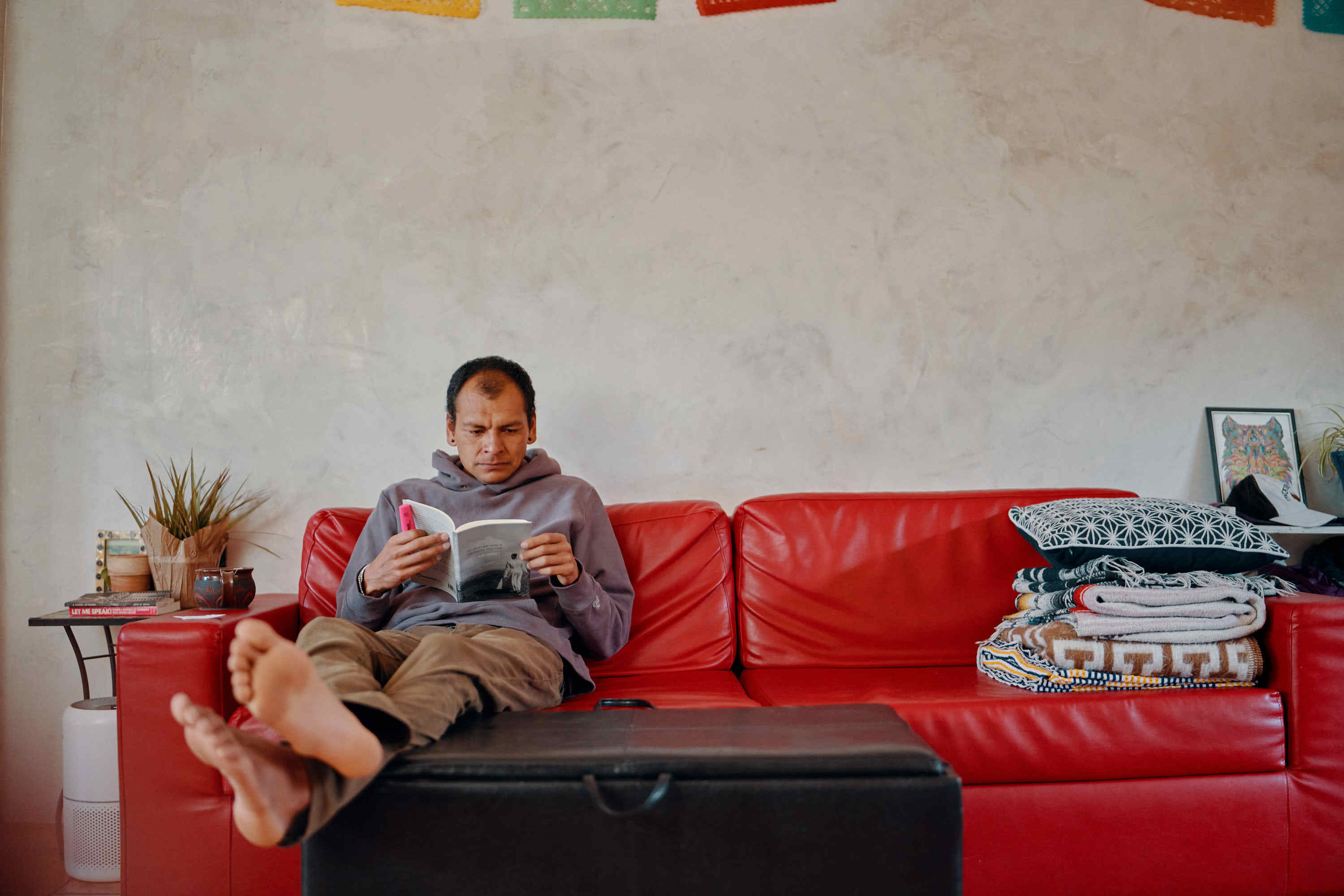
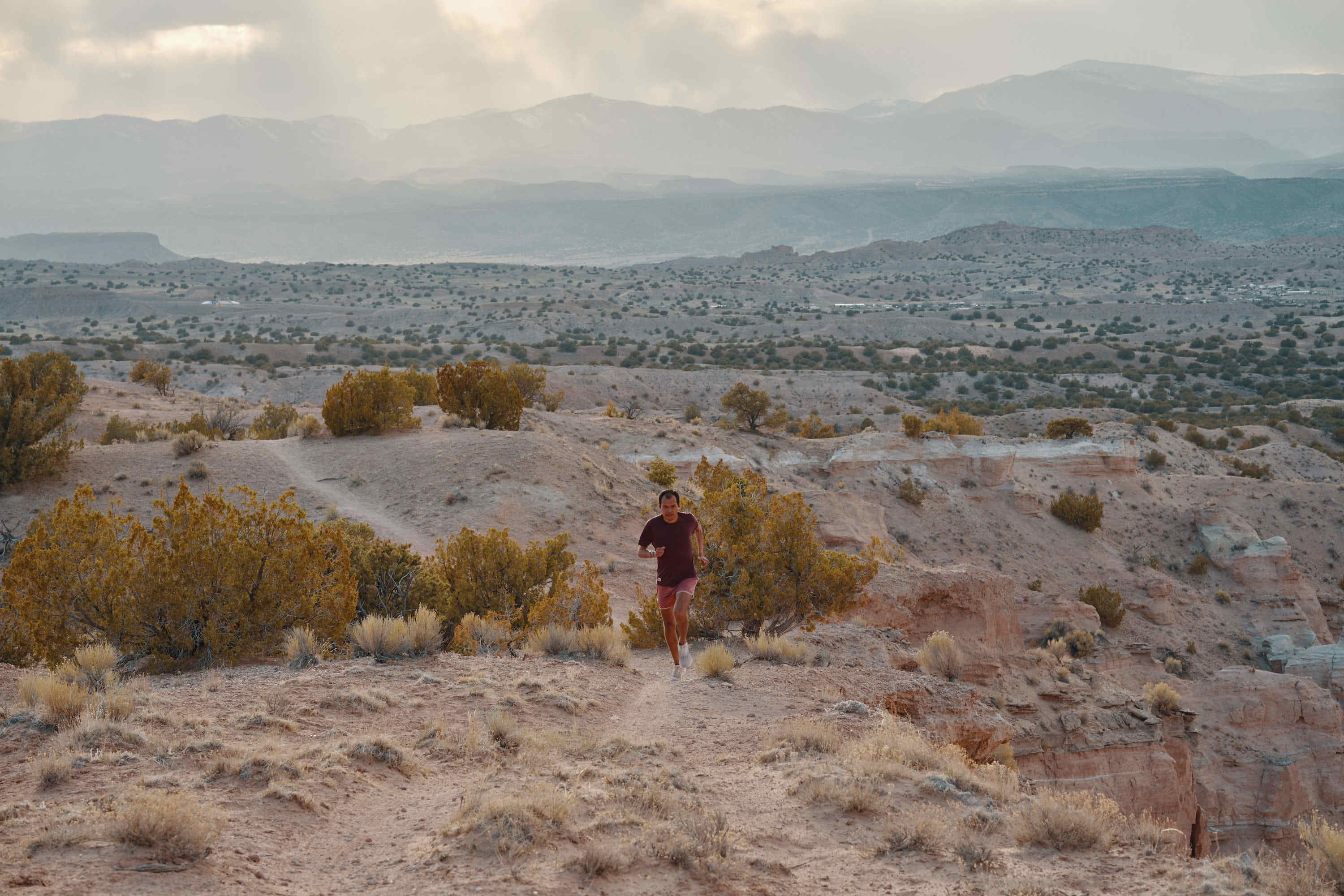
What poetry has given me has evolved over the years. Over the last decade, I've been doing it on a more serious level. Like running, I didn’t set out to break stereotypes. I was carrying on oral traditions that we've always had for hundreds and hundreds of years as indigenous peoples: spoken word and the sharing of stories. Really, that's what I do. I share my story through poetry. Running and poetry are super connected in the sense that they're places where I can break stereotypes. I’m creating things and new meanings and new ways of looking at myself and looking at others and new possibilities.
We grew up making $24,000/year combined income for my parents. If I make a fraction of that with poetry, that's great. I'm relatively unknown in the poetry scene, you know, because my poetry is so specific to an experience that not a lot of people have. Actually a lot of people have this experience, but there aren't many poets like us [undocumented or formerly undocumented folks] being recognized.
My goal is to create, build and share my work with people who look like me, have shared experiences and anyone who is willing to listen. That doesn't always give you recognition monetarily or otherwise, that a big mainstream writer might get. The biggest hope for myself is to continue being honest with the work that I write. If that's a room full of 5,000 people listening to me share a poem about how my grandmother dances, great. If it's a bunch of refugee students or immigrant students who might be English language learners and not understand everything, great. I would love to have a book deal, but I'm also not holding my breath for it. I am working towards it and if it comes great. If not, nothing is lost.
I had this idea that I need to write every day. I need to read every day. Maya Angelou wrote for three or four hours a day and all these great writers wrote for three or four hours a day. Why aren't I like that? So my practice right now is if I'm not writing, I try to read different kinds of poetry. I listen to videos or watch a lot of different performances. If I'm not writing and not reading, what are the other things I have to do to sharpen my tools right now? The practice is not trying to beat myself up when I'm not writing or producing and to try to do other things that are benefiting my practice in one way or another.
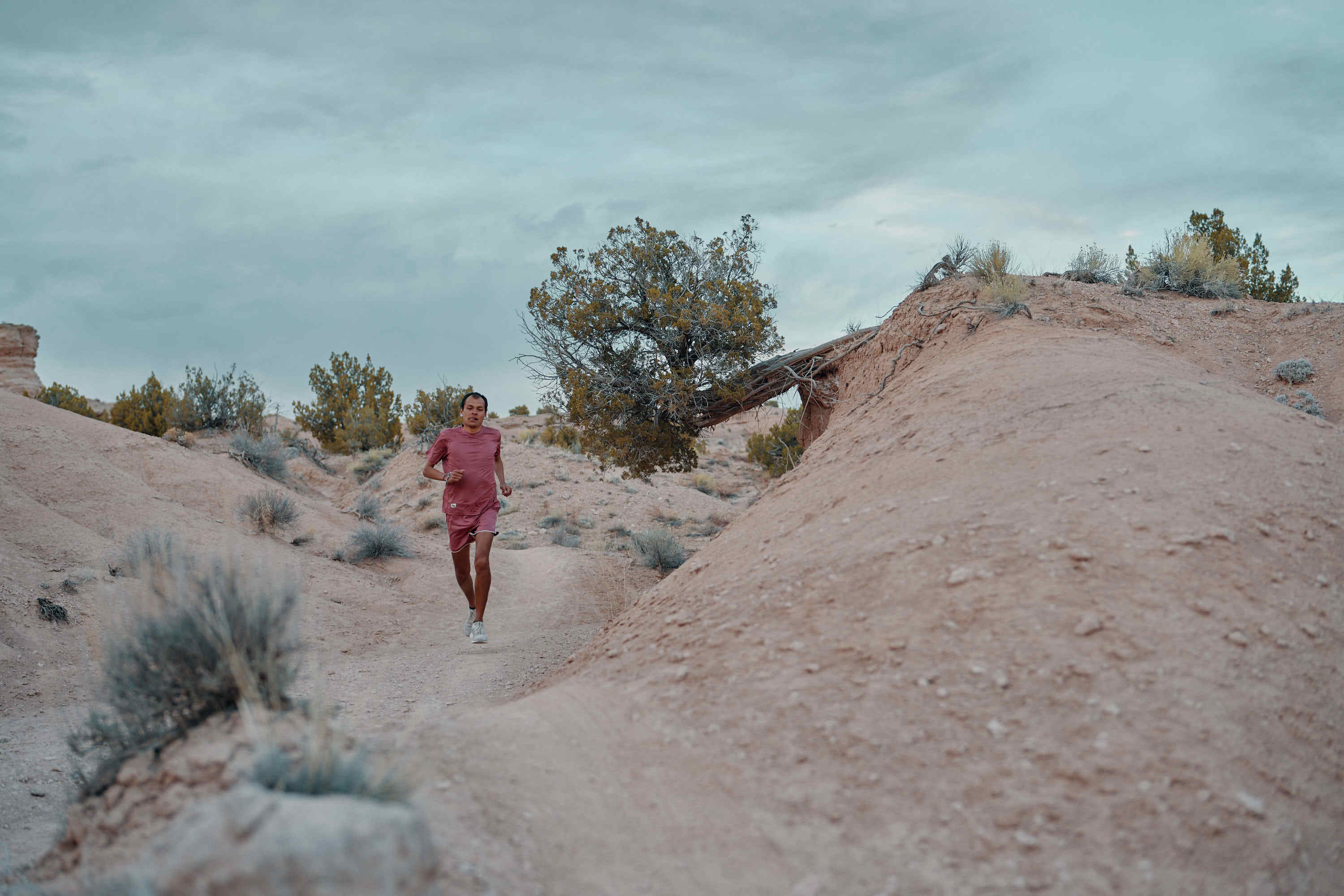
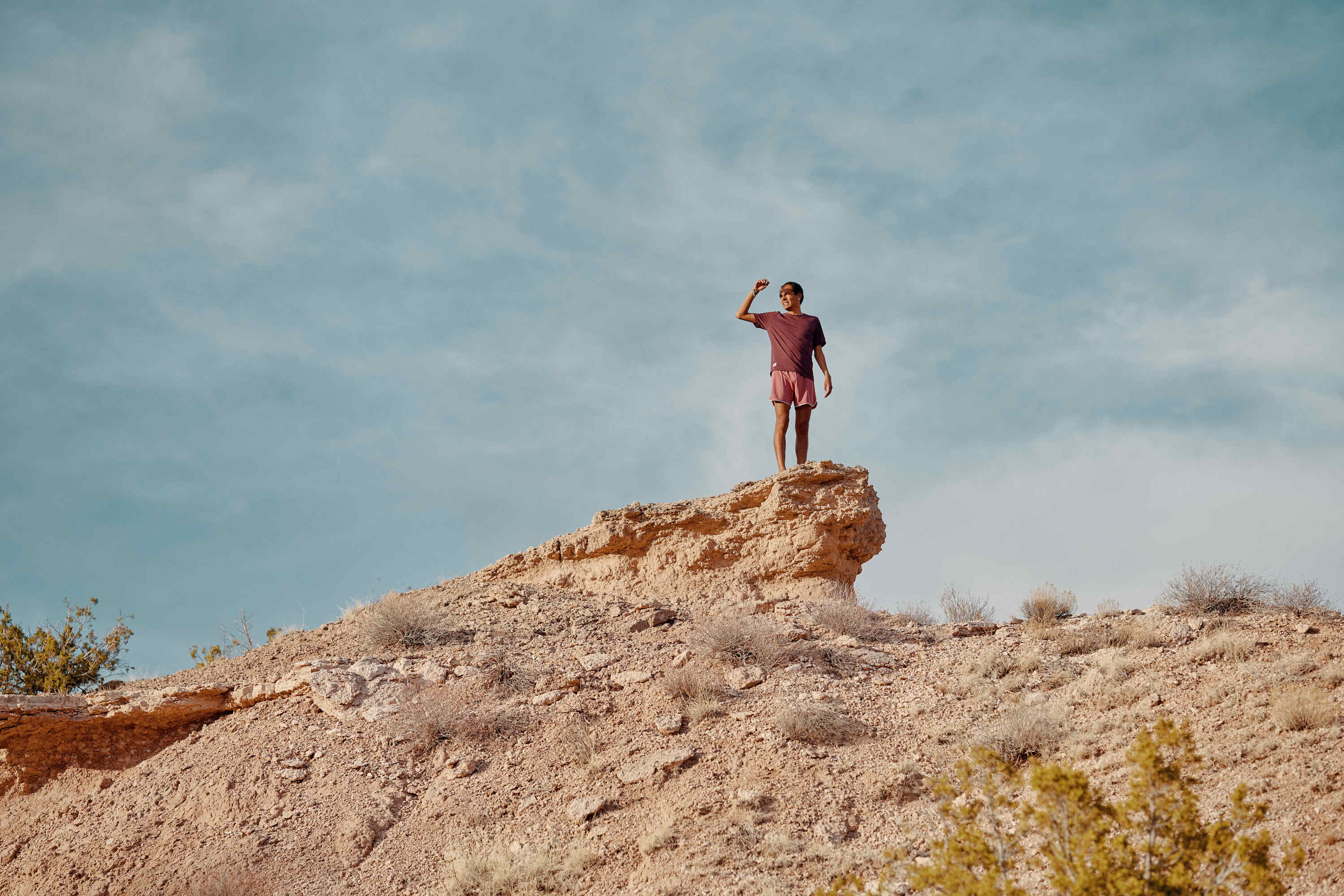
I’m feeling grateful and thankful for a lot of things that I have. Obviously poetry’s been great and my job has amazing aspects and the life that I have is amazing. At the same time, I’m frustrated and angry at how the system could work so much better for everybody. It does not because it was meant to be like that. That's frustrating.
We didn't just come here to work. We came here to try to build something new and we're here and continue to stay here because a lot of us don't have the flexibility to go back and forth between our countries. Because the idea of the border exists and the idea of papers and paperwork robs us of our agency. Even the well-intentioned messaging robs us of our humanity. My poetry, in that way, is trying to not fall into those stereotypes. It could be easy for me to write an angry poem about how we don't live in the shadows.
What if I write a poem about how my mom danced and danced all night after working so many hours out on the field? How that joy can never be taken away from her? What if we focused on that?
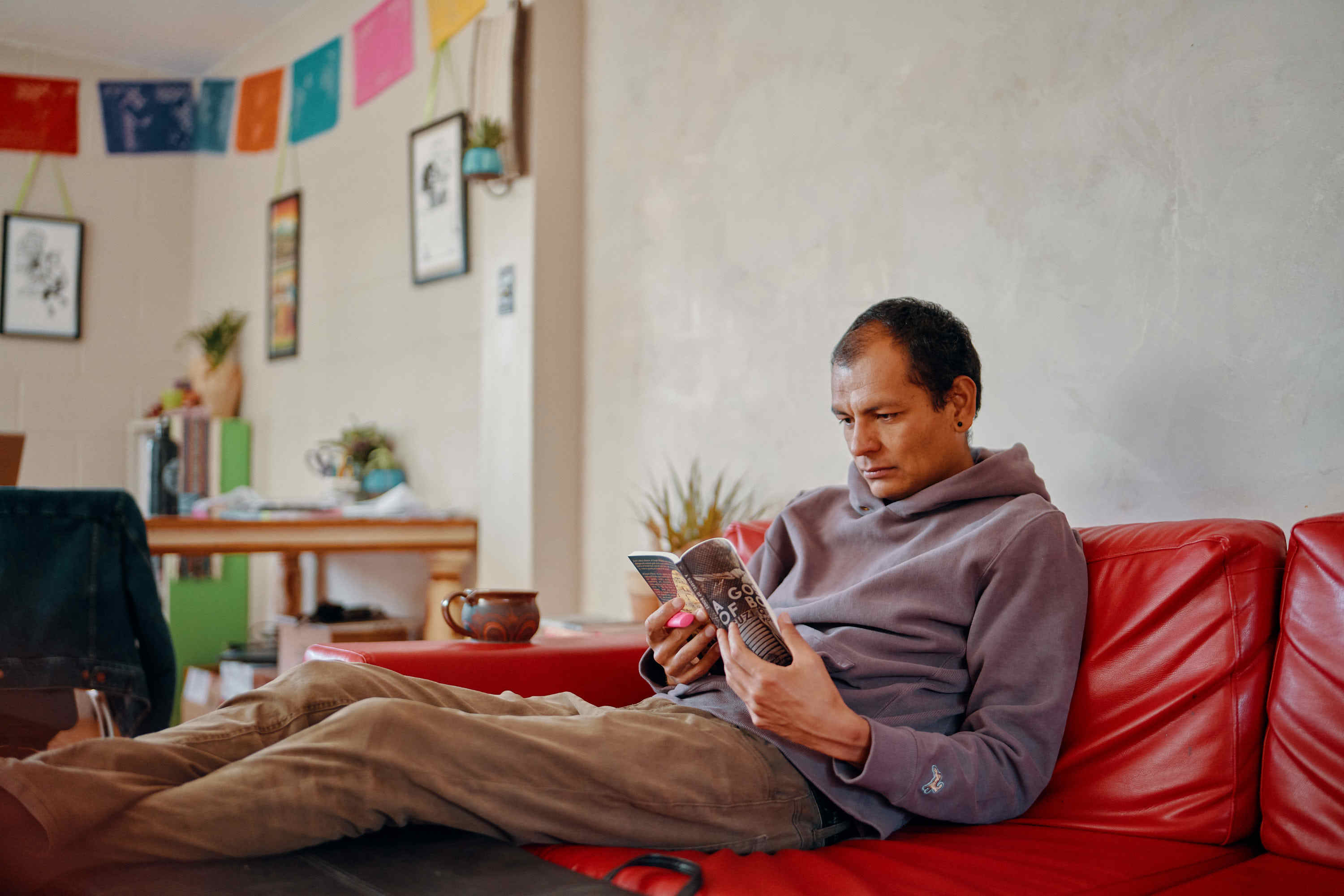
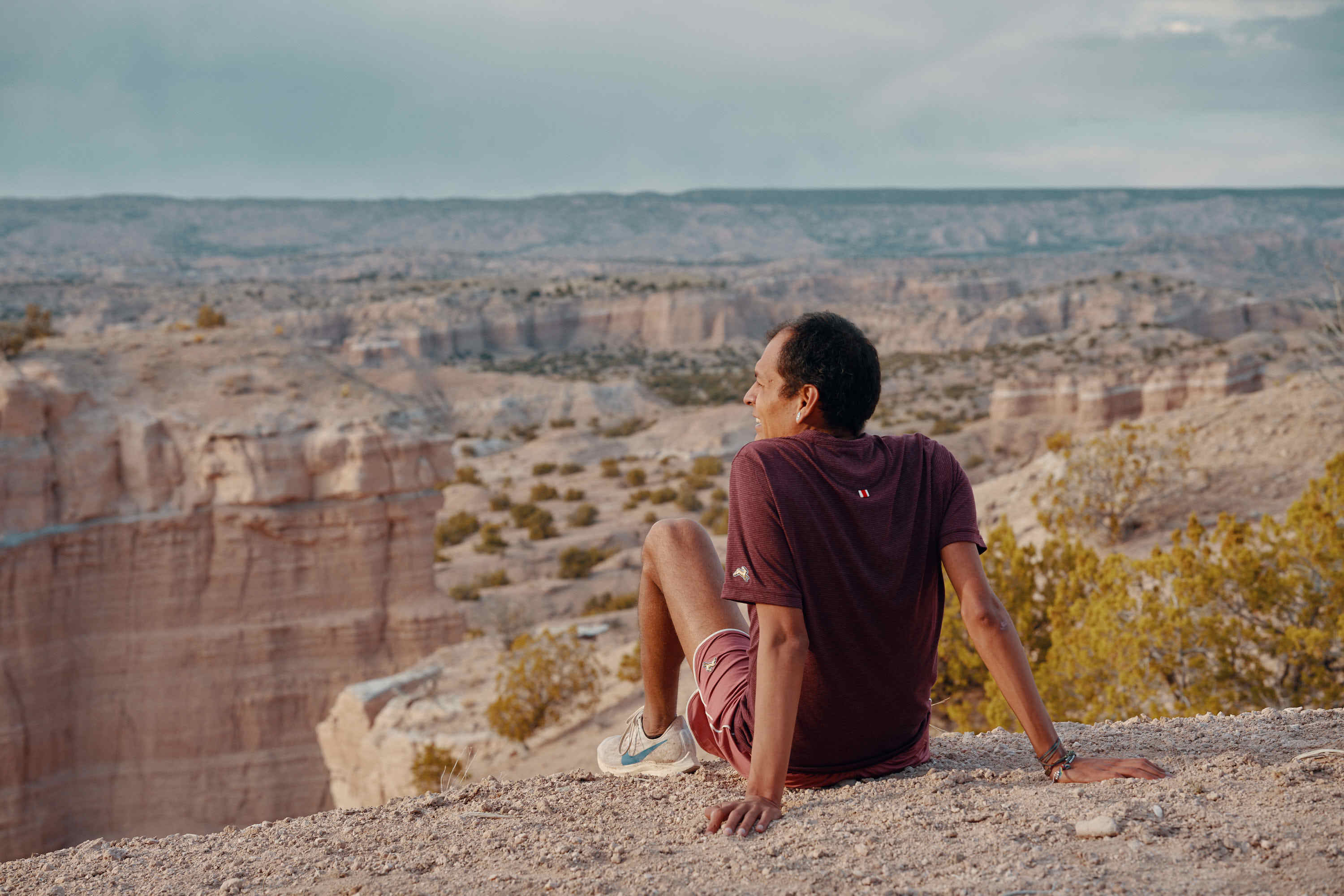
You can see Alejandro’s work, including his self-published book of poems, at his website.